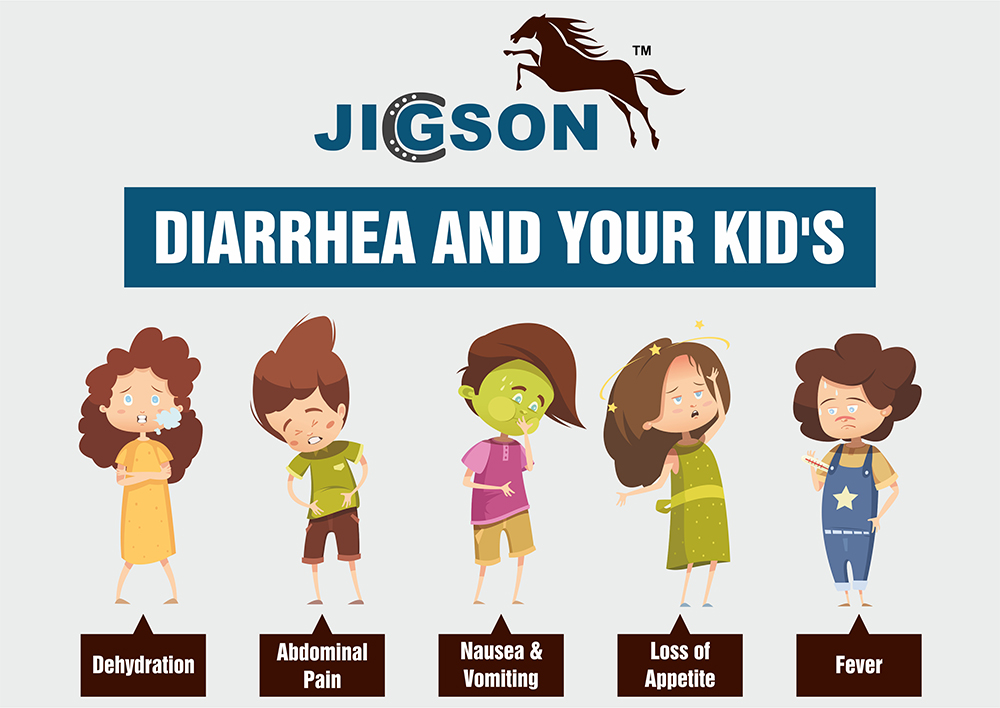
WHAT CAUSES DIARRHEA?
Diarrhea is usually caused by an infection in the intestines. The germs that cause the infection are:
Viruses (most common):
Viral gastroenteritis (often called the "stomach flu") is a common illness in children. It causes diarrhea and, often, nausea and vomiting. The symptoms usually last a few days, but kids (especially babies) who can't take enough liquids may become dehydrated. Rotavirus affects babies and young kids and can bring on watery diarrhea
Bacteria:
Many different types of bacteria can cause diarrhea, including E. coli, Salmonella, Campylobacter, and Shigella. These bacteria are often responsible for cases of "food poisoning," which can cause diarrhea and vomiting within a few hours after someone is infected.
Parasites:
Parasitic infections that can cause diarrhea in children include giardiasis and cryptosporidiosis.
WHAT ELSE CAN CAUSE DIARRHEA?
Kids can sometimes get diarrhea from:
- a high-sugar diet (for instance, from drinking lots of juice)
- food allergies
- lactose intolerance
- Malnutrition
- problems in the intestines like celiac disease and inflammatory bowel disease (Crohn's disease and ulcerative colitis)
WHAT ARE THE SIGNS & SYMPTOMS OF DIARRHEA?
Kids often get crampy belly pain first, followed by diarrhea that can last 3–5 days. Other symptoms may include:
- Fever
- Loss of appetite
- Abdominal Pain
- Nausea (an uncomfortable feeling before vomiting)
- Vomiting
- Weight loss
- Dehydration
